Location
Our Washington Location
Our inpatient facility is located in Washington, and will serve Washington state. It will provide a safe & therapeutic environment for both our staff and patients.
- Edmonds
7416 212th St SW,
Edmonds, WA 98026

Are you looking for addiction resources in Redmond, WA? Do you have an addiction and feel hopeless about your situation? Regardless of what your circumstances may be, there are resources and recovery tools in Redmond that are capable of helping you get sober.
Addiction rates are steadily rising year after year all across America. Redmond, Washington is no exception. Many of its residents are addicted to drugs or alcohol. Some residents abuse more than one substance at a time, and other residents have developed a co-occurring disorder. Not only are they hooked on drugs or alcohol, but they also struggle with a mental health disorder.
Although Redmond is not one of the top 10 addicted cities in Washington, substance abuse is still a fairly large problem here. Over 8,000 residents have a drug abuse problem. It's vital that residents with a drug or alcohol problem get the help that they need.
If you or someone you know struggle with a substance use disorder (SUD), check out this guide for more information on the resources and recovery tools that this city has to offer.
Redmond is a fairly large city in King County. It's close to many other large metropolitans, like Seattle. Redmond is known for many things. It's often recognized as the home of Nintendo of America and Microsoft. Its residents are also fairly active, as Redmond is also known as the "Bicycle Capital of the Northwest".
In comparison to other cities in Washington, Redmond has a milder drug and alcohol addiction problem. It's also one of the safer cities in Washington State. This city has a crime rate that's about two times less than the rest of the state.
Residents of Redmond get to enjoy fairly decent weather throughout the year. There's also a lot of trails and things to do here, making it one of the better cities to live in.
The best way to get clean and sober is to get professional help. No one can offer you as much guidance and support as addiction specialists.
Although help from a drug or alcohol rehab is the best route to choose, not everyone gets the treatment they need. While some people may opt out of treatment for financial reasons, many addicts and alcoholics simply don't know what to choose.
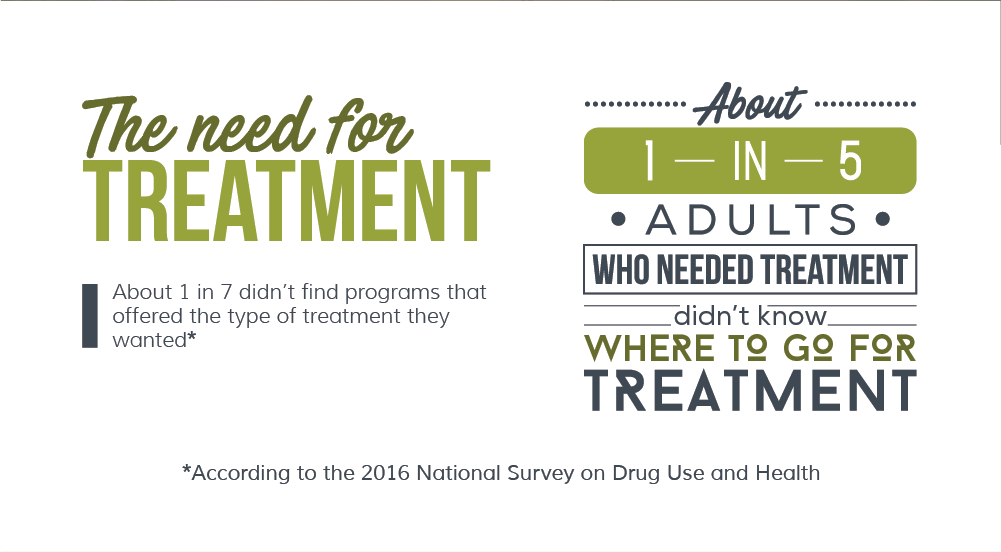
"About 1 in 5 adults who felt a need for treatment but did not receive treatment at a specialty facility did not know where to go for treatment. [Also,] about 1 in 7 did not find programs that offered the type of treatment that they wanted.
The 2016 National Survey on Drug Use and Health"
All alcohol and drug rehab facilities basically include the same treatment types. They include:
Each alcohol and drug rehab facility will specialize in a different area. Some treatment centers specialize in holistic treatment options, while others may specialize in treating specific drugs.
Before choosing an addiction treatment center, do some research on what each center specializes in. This may help you make a more informed decision. You'll get a better idea of what you need and what you don't need.
When choosing a drug or alcohol rehab facility, the first thing you need to consider the level of care you need. This will differentiate between whether you need an inpatient program or an outpatient program.
What's the difference between the two?
An inpatient program offers a higher level of care. Patients will need to pack for an inpatient facility, as they'll be moving in for the duration of their treatment. This can be anywhere from 28 to 90 days. Most patients will stay exclusively at the treatment center until they've completed their treatment plan.
An outpatient program is different in the sense that it's more flexible. Patients can schedule in treatment whenever they wish. There are different types of outpatient programs. Some of the most common ones include standard programs, intensive outpatient programs (IOPs) and Partial Hospitalization Programs (PHPs). The main difference in these programs is the amount of commitment that patients must make. Outpatient programs can take months to complete.
You’ll find a handful of inpatient and outpatient treatment centers in Redmond. Some drug and alcohol rehab facilities offer both inpatient and outpatient care.
While there are many addiction treatment facilities in Redmond, there are also many options in surrounding cities. Getting substance abuse treatment in another city or state also has its benefits.
Northpoint Washington is an inpatient addiction treatment facility, so we'd be remiss not to mention the benefits of inpatient programs. With an inpatient program, you can enjoy the exact same services as an outpatient program. You can also enjoy the following benefits:
Inpatient programs can treat all types of addictions. Each patient will receive an individualized care plan, so their treatment is customized to their needs. It's important to note that there isn't one solution that fits for everyone. Each addict will have different needs.
The goal of inpatient programs is to help addicts get their life back on the right track. Many inpatient treatment programs can help recovering addicts achieve lifelong sobriety.
If you're convinced that you'd be a better fit for an outpatient treatment center, consider taking a look at some of our other locations. Some of our other alcohol and drug treatment centers offer outpatient programs.
An overdose happens when you take too much of any substance. It's possible to overdose on just about any drug or substance. An alcohol overdose is also known as alcohol poisoning. Too much alcohol can have a devastating effect on your brain.
Substance abusers often overdose because they've built a tolerance to the substance. This basically means that they need to take larger and larger doses of the substance to achieve the same effects. A small dose will no longer have an effect on their body. This is because their brain has adapted to the presence of the substance.
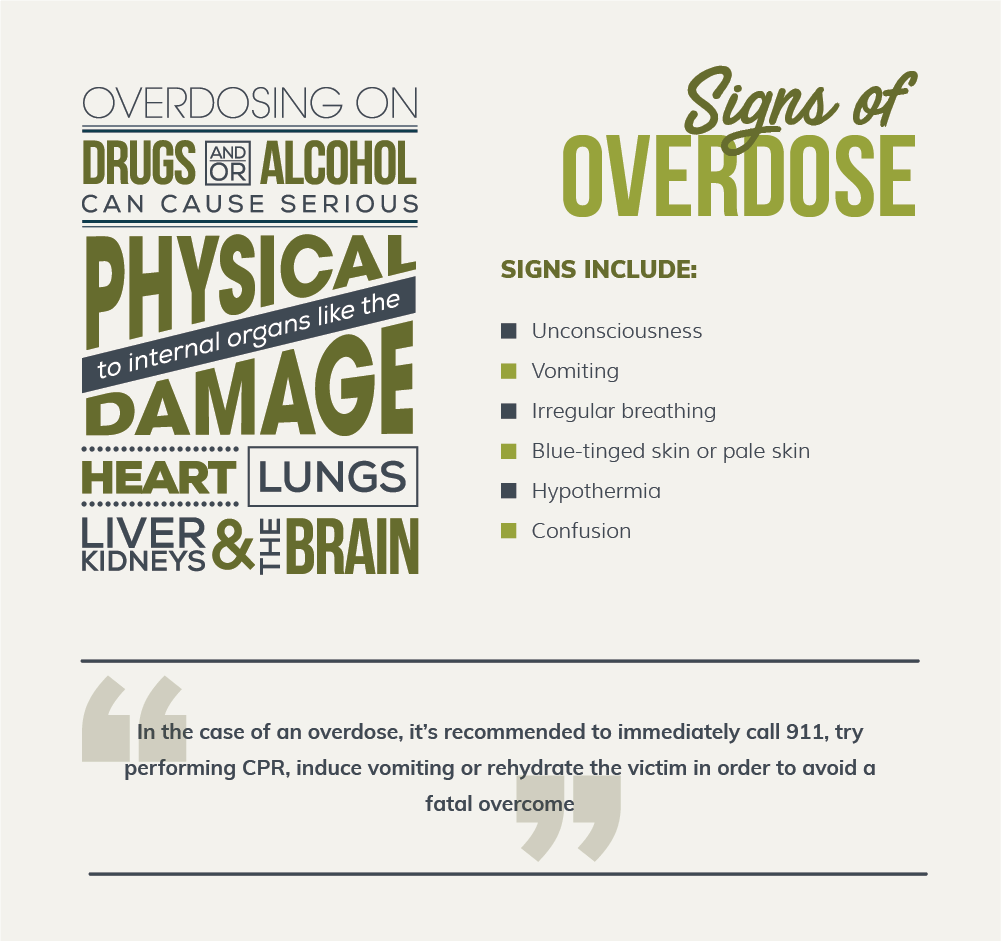
Overdoses can have horrible effects on the body and mind. It can lead to cardiac and respiratory depression and failure. In fact, someone who overdoses on opioids will stop breathing. Oxygen starvation leads to rapid brain damage.
In extreme cases, an overdose can lead to loss of consciousness, coma, and then death. To prevent this from happening, it's crucial that the overdose victim quickly gets the help that he or she needs.
So, what should you do in the event of an overdose?
The answer will vary depending on the type of substances that are abused. With that said, you're always going to need to call 9-1-1. In fact, this should be one of the first things that you do. The emergency operator can provide you with more information on what to do next.
If you're dealing with an opiate abuser, you'll probably need to perform CPR if he or she stops breathing. If you have naloxone handy, the operator will also likely ask you to administer the medication.
On the other hand, if you're dealing with a cocaine user, you may need to restrain the overdose victim physically. It's not unusual for overdose victims to become violent or aggravated.
If the overdose victim is conscious, ask them questions relevant to the overdose. You'll want to gather as much information as you can. The following type of information can be helpful to the 9-1-1 operator:
The 9-1-1 operator will also want to know about the overdose victim's condition. This might include whether they are sweating, conscious, heating up, flushed or calm.
Naloxone plays an important role in the war against opioids. The brand name version of this medication is known as Narcan. This prescription drug is an opioid-reversing medication. Its active compounds attach to opioid receptors in the brain. This prevents any opioids in your system from attaching to the receptors and having an effect on your brain and body.
With at least two-thirds of all drug overdose deaths being caused by opioids, it's a good thing that we finally have a tool that can combat this issue.
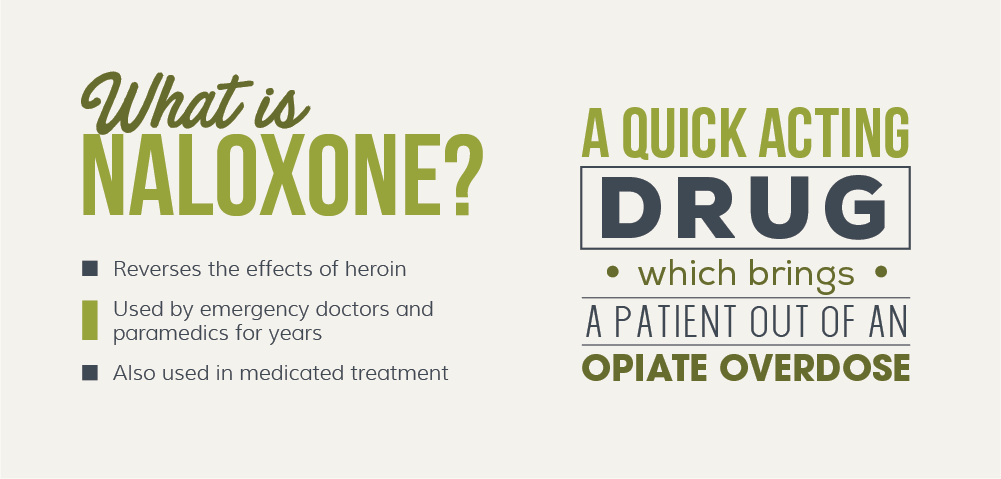
You can purchase naloxone as a nasal spray or as an injection. Both methods of administration will cause the effects of the drug to kick in with 1 to 5 minutes. The effects last for about 90 minutes. Naloxone will help an overdose victim resume normal breathing.
Anyone can administer naloxone. Good Samaritan laws protect the administrator as long as he or she calls 9-1-1 immediately after. It's important to note that administering naloxone itself won't save a life. The overdose victim may still have opioids in his or her system. Once the naloxone wears off, he or she may experience another overdose.
It's also important to remember that the overdose victim may need CPR if he or she stops breathing. This is one of the most important things that people forget. If you don't know how to perform CPR, check out the video below:
If you're looking for naloxone, you can find it at several places. For one, you can always buy this life-saving medication from pharmacies in Redmond. You can get this prescription medication without a prescription from a doctor. A pharmacist may want to walk you through how to administer this drug.
The cost of naloxone will vary significantly. It depends on the type of naloxone you're looking to buy, and the type of coverage that your insurance plan offers. In general, you can expect generic naloxone to cost between $20 to $40 a dose. On the other hand, Narcan costs about $130 to $140 per two doses.
If you have private insurance, your insurance will usually cover a significant amount of the cost. Most insurance plans will cover the full cost of naloxone. After all, this opioid-reversing medication is a life changer that can save lives.
If you don't have your own health insurance, you might qualify for Medicaid or Medicare. Both of these government-funded health insurance plans cover the cost of naloxone.
You may also find naloxone at outreach centers, community centers, town hall and at your local police department.
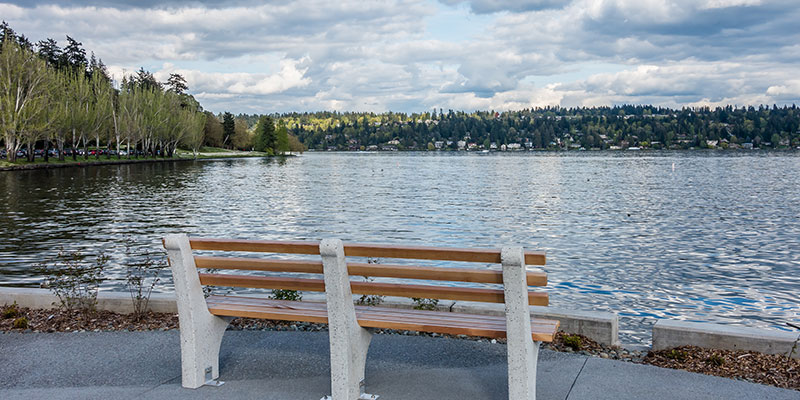
Studies show that a successful addiction treatment plan must include support groups or recovery meetings. Peer support is a critical key to recovery. It's a constant that can help keep recovering addicts on the right path.
Many rehab programs will offer their own support groups through alumni programs. Addiction specialists also encourage patients to join a support group or recovery meeting outside of the addiction treatment center. These meetings are important during the treatment and also a necessary component of any aftercare plan.
Some of the most popular support groups are 12 step programs. These programs follow twelve distinct steps and principles. Common 12 step programs that are extremely popular among recovering addicts include:
There are many other 12 step programs available. All of these programs only have one requirement for attendance. Members must have a desire to get clean.
There are other types of recovery meetings and support groups in Redmond. Recovering addicts can choose to attend online meetings, private meetings and even SMART (Self-Management and Recovery Training) meetings.
Everything shared in these meetings will be kept 100% confidential. Recovering addicts can choose when to go to meetings. They can go as frequently as they wish.
Let's take a closer look at some of the more popular 12 step programs below.
Alcoholics Anonymous (AA) is perhaps one of the largest and most popular 12 step programs out there. These support groups help those who struggle with alcoholism or an alcohol use disorder (AUD).
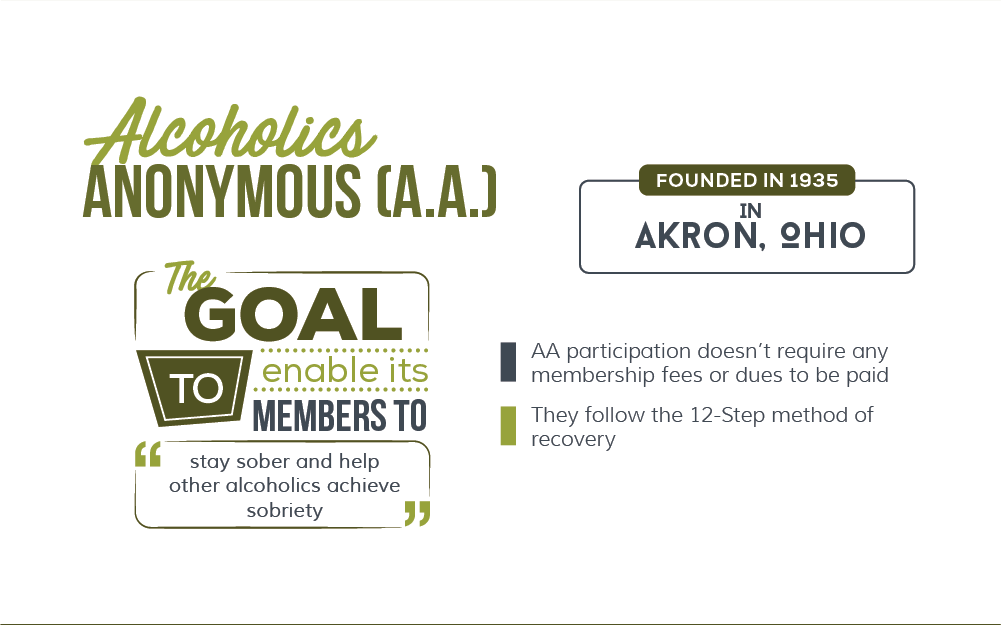
While members should believe in a power greater than themselves, these meetings have no religious association. Anyone can join. AA meetings tend to be very welcoming. The only requirement to join is to want to stop drinking.
AA has helped millions of people worldwide quit drinking. The methods employed in these meetings are quite effective.
AA meetings are separated into open meetings and closed meetings. These meetings have one distinct difference: the type of members allowed. While anyone can go to an open meeting, only those who struggle with alcoholism are invited to closed meetings.
As a result, closed meetings tend to feel more intimate and personal. Those who feel too shy to share their experiences and struggles at open meetings may wish to save what they have to say for a closed meeting.
AA meetings are designed to not only teach the twelve steps, but also explore how each member is doing. The meetings are separated into speaker discussions, book studies, step studies and daily reflections. Note that not everyone has to share and open up during daily reflections. If you don't feel comfortable sharing, you can always opt to listen instead. There's no pressure or obligation to speak at all.
Also, most AA meetings will pair newcomers with a sponsor. The sponsor is usually a more established member who can help the newcomer navigate through his or her addiction.
There are quite a few AA meetings in Redmond. Finding a meeting time that can fit into your schedule shouldn't be too difficult. If you're having difficulties, expand your search. You'll find a lot of options in nearby cities as well.
5:00 PM:
First Responders Recovery Fellowship
16715 NE 79th St
7:00 PM:
Sunday Big Book Study
11526 162nd Ave NE
10:00 AM:
Women's Big Book Study (For Women Only)
12300 Redmond-Woodinville Rd NE
7:30 PM:
AA Team
16540 NE 80th St
7:30 PM:
Keep It Simple
16540 NE 80th St
10:00 AM:
Sober Seniors
7950 Willows Rd
12:00 PM:
High Nooners
12300 Redmond-Woodinville Rd NE
4:30 PM:
Recov'r We
4330 148th Ave NE
12:15 PM:
Steps To Freedom
10526 166th Ave NE
4:30 PM:
Recov'r We
4330 148th Ave NE
8:00 PM:
Redmond Study Group
9041 166th Ave NE
Narcotics Anonymous (NA) meetings are similar to AA meetings. The primary difference is that they discuss drug abuse only. Members can be addicted to any type of drug. It doesn't matter as long as the members have a desire to get clean.
NA is perhaps the second most popular 12 step program out there. Its many branches and groups have helped millions of recovering drug addicts with lifelong sobriety.
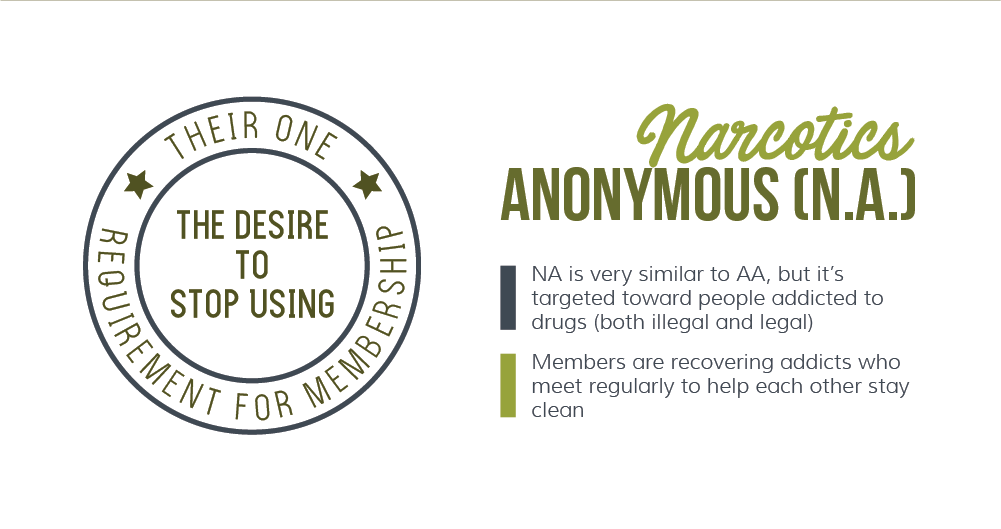
If you compare Narcotics Anonymous meetings with AA, you'll notice that everything is basically the same. The meetings follow the same twelve principles, steps, and more. They have the same meeting structures. You can expect closed meetings and open meetings, as well as similar meeting types, like speaker discussions, daily reflections, step studies, book studies and more.
NA meetings can also target specific drugs, like heroin or pills. For example, Pills Anonymous (PA) is for anyone addicted to prescription drugs. The prescriptions can be for opioids, stimulants benzodiazepines, barbiturates or depressants.
Unlike with AA in Redmond, there aren't many NA meetings in Redmond, or in any other city. NA is simply not as popular. There is only one NA meeting in Redmond:
Time: Tuesday @ 7:30 PM
Location:
Faith Lutheran Church
9041 166th Avenue Northeast
Redmond, Washington 98052
If you can't make it to this meeting time, you'll be happy to know that there are quite a few other alternatives and options available. You can find many NA meetings in cities around Redmond.
Seattle, Lynnwood, Monroe, Bothell and Snohomish are all close to Redmond. There are plenty of NA meetings at these other cities. These NA meetings are within 20 miles of Redmond. In short, you should be able to get to these meetings within 30 minutes.
9:30 AM:
Rob's 125th St Grill
12255 Aurora Avenue North
Seattle, Washington 98133
10:00 AM:
Recovery Center
17880 147th Street SE
Monroe, Washington 98272-1014
(This is a closed meeting)
10:30 AM:
Eastside Alano Club
12302 NE 8th Street
Bellevue, Washington 98005-3116
1:00 PM:
12x12 Fellowship Hall
23718 Bothell Everett Highway
Bothell, Washington 98021-9383
5:00 PM:
Old Snohomish Library
1st & Cedar Street
Snohomish, Washington 98290
6:00 PM:
Edmonds Lutheran Church
23525 84th Avenue West
Edmonds, Washington 98026-8611
7:00 PM:
Cascade Behavioral Hospital
12844 Military Road South
Tukwila, Washington 98168-3045
Riverton Campus Room 171
8:00 PM:
Lynnwood Alano Club
4001 198th Street SW
Lynnwood, Washington 98036-6731
10:00 AM:
Lynnwood Alano Club
4001 198th Street SW
Lynnwood, Washington 98036-6731
12:00 PM:
Broadview Community Church
325 North 125th Street
Seattle, Washington 98133-8123
Basement
5:00 PM:
Avalon Place
2988 Southwest Avalon Way
Seattle, Washington 98126-2599
Community room
6:00 PM:
Good Sheperd Baptist Church
6915 196th Street SW
Lynnwood, Washington 98036
7:00 PM:
Cascade View Presbyterian Church
1030 East Casino Road
Everett, Washington 98203-6537
7:30 PM:
Kirkland Congregational Church
106 5th Avenue
Kirkland, Washington 98033-6164
Room 22
7:30 PM:
Seventh-Day Adventist Church
14118 Chain Lake Road
Monroe, Washington 98272-8741
10:00 PM:
Lynnwood Alano Club
4001 198th Street SW
Lynnwood, Washington 98036-6731
10:00 AM:
Seattle VA Medical Center
1660 South Columbian Way
Seattle, Washington 98108
Bldg 24, Room 40
12:00 PM:
Gideon Mathew Apartments
323 25th Avenue South
Seattle, Washington 98144-2361
Community Room
1:30 PM:
115 15th Avenue East, Suite 201
Seattle, Washington 98112-5614
6:00 PM:
Our Redeemer's Lutheran Church
2400 NW 85th Street
Seattle, Washington 98117-3733
7:00 PM:
Old Snohomish Library
1st & Cedar Street
Snohomish, Washington 98290
7:30 PM:
Kirkland Congregational Church
106 5th Avenue
Kirkland, Washington 98033-6164
7:30 PM:
Bothell United Methodist Church
18515 92nd Avenue Northeast
Bothell, Washington 98011-2206
7:30 PM:
Depot
26227 Stephens Street NE
Duvall, Washington 98019-6428
10:00 AM:
Lynnwood Alano Club
4001 198th Street SW
Lynnwood, Washington 98036-6731
12:00 PM:
Fremont Baptist Church
717 North 36th Street
Seattle, Washington 98103-8804
3:00 PM:
Lynnwood Alano Club
4001 198th Street SW
Lynnwood, Washington 98036-6731
6:00 PM:
Capital Hill Presbyterian Church
1729 Harvard Avenue
Seattle, Washington 98122-2227
7:00 PM:
Saint Elizabeth's Episcopal Church
1005 Southwest 152nd Street
Burien, Washington 98166-1845
7:00 PM:
14724 1st Avenue NE
Shoreline, Washington 98125
Upstairs
7:00 PM:
New Heights Christian Church
21628 116th Avenue Southeast
Kent, Washington 98031-2321
7:00 PM:
Tolt Congregational UCC
4851 Tolt Avenue
Carnation, Washington 98014
Basement
7:30 PM:
VOA Hall
701 1st Street
Sultan, Washington 98294
12:00 PM:
Broadview Community Church
325 North 125th Street
Seattle, Washington 98133-8123
Basement
6:30 PM:
Bridge Church of Snohomish
6016 99th Avenue SE
Snohomish, Washington 98290-1322
7:00 PM:
Park Ridge Community Church
3805 Maltby Road
Bothell, Washington 98012
7:30 PM:
Cascade Behavioral Hospital
12844 Military Road South
Tukwila, Washington 98168-3045
Riverton Campus Room 171
7:30 PM:
Seventh-Day Adventist Church
14118 Chain Lake Road
Monroe, Washington 98272-8741
7:30 PM:
Maplewood Presbyterian Church
19523 84th Avenue West
Edmonds, Washington 98026-6105
10:00 PM:
Ronald United Methodist Church
17839 Aurora Avenue North
Shoreline, Washington 98133-4814
10:00 AM:
Lynnwood Alano Club
4001 198th Street SW
Lynnwood, Washington 98036-6731
12:00 PM:
Broadview Community Church
325 North 125th Street
Seattle, Washington 98133-8123
Basement
2:00 PM:
POCAAN Center
1820 East Pine Street
Seattle, Washington 98122
3:00 PM:
Lynnwood Alano Club
4001 198th Street SW
Lynnwood, Washington 98036-6731
6:00 PM:
Hope Hall
8305 Meadowbrooke Way SE
Snoqualmie, Washington 98065
7:00 PM:
Recovery Center
17880 147th Street SE
Monroe, Washington 98272-1014
Past treatment center doors
7:30 PM:
Edmonds Lutheran Church
23525 84th Avenue West
Edmonds, Washington 98026-8611
upstairs, next to the kitchen
8:00 PM:
Lake Washington United Methodist Church
7525 132nd Avenue NE
Kirkland, Washington 98033
10:00 AM:
2022 Boren Avenue
Seattle, Washington 98121-2703
Denny Triangle
12:00 PM:
Broadview Community Church
325 North 125th Street
Seattle, Washington 98133-8123
basement
1:30 PM:
VOA Hall
701 1st Street
Sultan, Washington 98294
3:30 PM:
IHOP Restaurant
610 Rainier Avenue South
Renton, Washington 98057-2409
5:15 PM:
Lynnwood Alano Club
4001 198th Street SW
Lynnwood, Washington 98036-6731
6:00 PM:
Eagle Harbor Congregational Church
105 Winslow Way W
Bainbridge Island, Washington 98110-2511
7:00 PM:
Fremont Baptist Church
717 North 36th Street
Seattle, Washington 98103-8804
7:30 PM:
Kirkland Congregational Church
106 5th Avenue
Kirkland, Washington 98033-6164
Room 23
11:59 PM:
Fremont Baptist Church
717 North 36th Street
Seattle, Washington 98103-8804
Addiction affects everyone. It's also very widespread in America. In fact, nearly 50% of all Americans have a family member or friend who is addicted to drugs or alcohol. Many Americans are familiar with the crippling effect that substance abuse can have on a family.
Addicts can be wives, husbands, grandparents, parents, siblings, children, and more. Everyone is equally as likely to abuse alcohol or drugs.
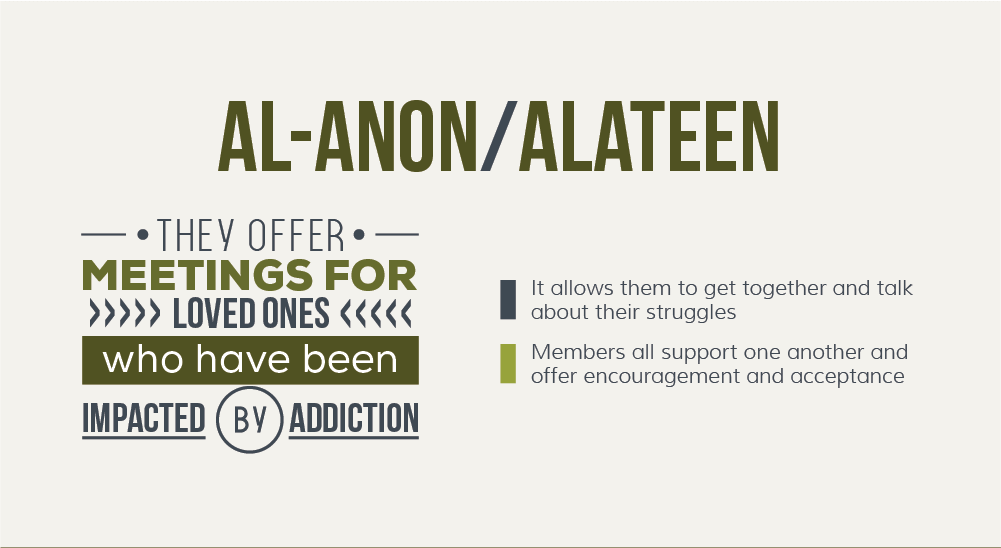
Some people may even become functioning alcoholics and addicts. They may be able to hide their drug or alcohol use with ease. With that said, some people have more risk factors than others.
So, what do you do if you know someone who is addicted to drugs? You're likely going to want to help them. It's often difficult to draw a line on how much help to offer.
Some people end up dedicating their whole lives to helping an addict. The entire experience can be very tedious, overwhelming and tiring. Loved ones often end up depressed and feeling hopeless. To get out of this rut, they'll need as much help as they can get.
Studies show that Al Anon meetings can help loved ones learn how to cope with a family member or friend's drinking or drug use.
What are Al Anon or Alateen meetings? Essentially, they're mutual support programs for people whose lives have been affected by an addict. Members share their common experiences and learn how to bring about positive changes in their own life, regardless of whether the addict chooses to get help or not.
Al Anon meetings welcome anyone and everyone. Alateen meetings, on the other hands, are usually reserved for teenagers with a parent who is an addict.
Al Anon and Alateen meetings are free. You don't need to register in order to attend one. You can drop in whenever you feel like you need some support. Most addiction experts and therapists recommend going to at least one meeting every week for best results. With that said, you can go as frequently and infrequently as you wish. Some people go to more than one meeting a week if they need more support.
At the Al Anon or Alateen meetings, you'll discuss how it feels like living with an addict. You can also open up about your experiences and share your frustrations. No one there will judge you for what you have to say. Also, everything that you share at those meetings will be kept 100% confidential.
If you're hesitant to go to an Al Anon or Alateen meeting because you're not sure what to say, don't worry. You are not obligated to speak during the meetings. Newcomers are provided with literature, and are usually invited to listen and learn first. Some meetings are designed specifically for newcomers.
There are several Al Anon meetings in Redmond. They're hosted in the evenings, so they usually won't interfere with work or school schedules. Check out the calendar below to see whether any of the meeting times work for you.
7:30 PM:
Tuesday Night Gratitude AFG
16540 NE 80th St
7:00 PM:
GFA Hijos Adultos Unidad
16540 NE 80th St
8:00 PM:
Redmond Friday Night AFG
9041 166th Ave NE
If you don't see anything that works for you, expand your search and look for Al Anon or Alateen meetings in cities around Redmond. You should be able to easily find something that works for you nearby.
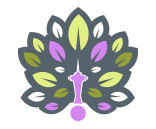
It's difficult to beat an addiction without professional help. Northpoint Washington can offer you the help that you need. We offer many different types of inpatient addiction treatment programs for all types of addictions.
Check out our testimonials to see what other people have to say about addiction recovery facility. We'd also be happy to schedule you in for a tour of our facility. This will give you a first-hand experience on the quality of care you'll receive. You’ll get to see how our staff interact with our patients, and get a better understanding of how our program works.
Our addiction specialists and staff are here to help you succeed. We hope that you'll achieve lifelong sobriety with the right treatment plan. If you're interested in seeing what we have to offer, don't hesitate to reach out. We'd be happy to walk you through how our treatment plans work, and what you need for a successful recovery.

Our admissions coordinators are here to help you get started with treatment the right way. They'll verify your health insurance, help set up travel arrangements, and make sure your transition into treatment is smooth and hassle-free.
[DirectNumber] Contact Us